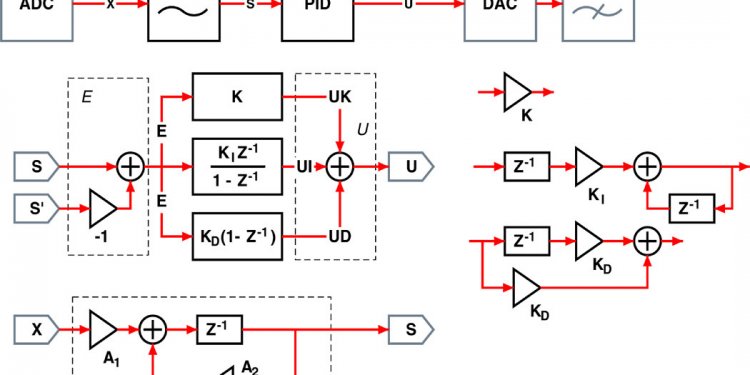
Signal flow graph in control system
Introduction to control problem
Industrial Control examples. Transfer function models of mechanical, electrical, thermal and hydraulic systems. System with dead-time. System response. Control hardware and their models: potentiometers, synchros, LVDT, dc and ac servomotors, tachogenerators, electro hydraulic valves, hydraulic servomotors, electropeumatic valves, pneumatic actuators. Closed-loop systems. Block diagram and signal flow graph analysis, transfer function.
Basic characteristics of feedback control systems
Stability, steady-state accuracy, transient accuracy, disturbance rejection, insensitivity and robustness. Basic modes of feedback control: proportional, integral and derivative. Feed-forward and multi-loop control configurations, stability concept, relative stability, Routh stability criterion.
Time response of second-order systems, steady-state errors and error constants. Performance specifications in time-domain. Root locus method of design. Lead and lag compensation.
Frequency-response analysis
Relationship between time & frequency response, Polar plots, Bodes plot, stability in frequency domain, Nyquist plots. Nyquist stability criterion. Performance specifications in frequency-domain. Frequency-domain methods of design, Compensation & their realization in time & frequency domain. Lead and Lag compensation.
Op-amp based and digital implementation of compensators. Tuning of process controllers. State variable formulation and solution.
State variable Analysis
Concepts of state, state variable, state model, state models for linear continuous time functions, diagonalization of transfer function, solution of state equations, concept of controllability & observability.
Introduction to Optimal control & Nonlinear control
Optimal Control problem, Regulator problem, Output regulator, treking problem.

















